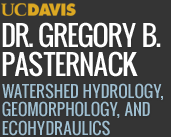Water Psychology Discussion
To Know Thy Self, Go Wild?
Background:
In the movie Into The WildChris McCandless leaves behind his friends and family after he graduates from college to develop a new existence to be culminated with a grand challenge to survive in the Alaskan wilderness. The publicization of his story has raised many different viewpoints not only on the specifics of his tragic death, but larger questions about the ways people interact with the environment.
The question arises, Is a journey into the wild the right choice to find oneself?
Different stakeholders have different perspectives on this issue.
Broad Assignment:
You will watch the movie Into The Wild to view a dramatized, fictional perspective on one young man’s sojourn across the U.S. in an effort to achieve self-actualization. After watching the movie but before coming to your discussion section, everybody will read an academic essay on the central question to be debated. Further, after watching the movie but before coming to your discussion section, each person will be assigned to a stakeholder viewpoint and you will read a document presenting the viewpoint you are assigned to articulate. In class you will participate in discussion of the scenario.
Everybody reads:
- Zink, R. 2010. Asking 'Who are you?' when going into the wild: moving beyond an individualized form of outdoor education. Journal of Adventure Education and Outdoor Learning 10:1:19-32.
- Note that this item cannot be shared publicly, but is available through UCD's online journal access rights. Please obtain this from the SAS004 Canvas Files pages or by downloading it directly from the journal from a UCD-hosted internet connection.
Stakeholder ID’s For This Assignment:
- Nature therapy scholar
- Alaskan journalist
- American environmental historian 1
- American environmental historian 2
Specific Readings by Stakeholder ID:
You are welcome to search the internet to find more resources in support of discussing the viewpoint you are assigned to represent.
2. Simpson, S. 2003. A man made cold by the universe. Nidus 4. http://www.pitt.edu/~nidus/archives/spring2003/manmadecold.html
3. Cronon, W. 1996. The Trouble with Wilderness: Or, Getting Back to the Wrong Nature. Environmental History 1:1:7-28.
Note that this item cannot be shared publicly, but is available through UCD's online journal access rights. Please obtain this from the SAS004 Canvas Files pages or by downloading it directly from the journal from a UCD-hosted internet connection.
4. Hays, S. P. 1996. Trouble with Bill Cronon's Wilderness. Environmental History 1:1:29-32
Note that this item cannot be shared publicly, but is available through UCD's online journal access rights. Please obtain this from the SAS004 Canvas Files pages or by downloading it directly from the journal from a UCD-hosted internet connection.
Activity in Discussion Section:
- 7 minutes settling class down, deal with class issues, and TA intro to scenario.
- 7 minutes discussion with same all people with same viewpoint discussing how to make your main points
- 7 minutes with an opposing viewpoint, one-on-one
- 7 minutes with an opposing viewpoint, one-on-one.
- 7 minutes with an opposing viewpoint, one-on-one.
- 7 minutes with an opposing viewpoint, one-one-one
- 7 minutes whole-class discussion wrap up.


